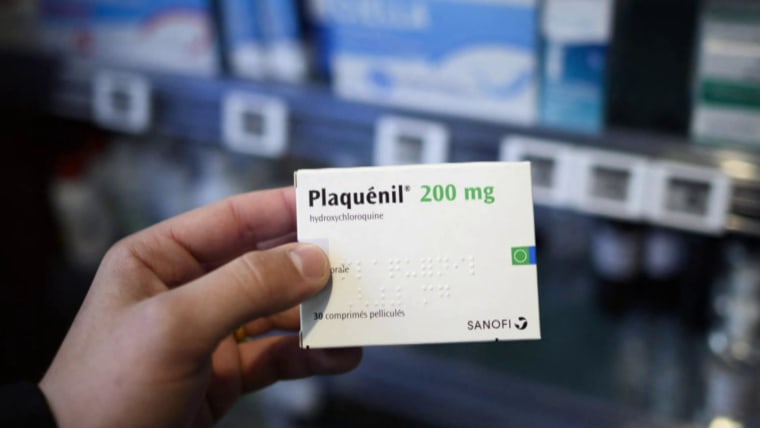Hydroxychloroquine does not help COVID-19 patients, and indeed may increase deaths, according to a large, international study published Friday in The Lancet.
The research is the latest to show the drug — which President Donald Trump this week said he was taking as a preventive strategy — can lead to potentially deadly heart problems.
Full coverage of the coronavirus outbreak
Hydroxychloroquine is an antimalarial drug that’s also used to treat lupus and rheumatoid arthritis. There is no evidence it can help prevent the coronavirus, though such studies are ongoing.
The new study, led by investigators at Brigham and Women’s Hospital Center in Boston, included data from 671 hospitals on six continents.
Researchers compared the outcomes of nearly 15,000 COVID-19 patients received the drug or a similar compound, chloroquine, plus an antibiotic with those of about 81,000 COVID-19 patients who had not received the drugs. It was an observational study, meaning patients were not randomized to get a particular drug or a placebo.
Let our news meet your inbox. The news and stories that matters, delivered weekday mornings.



“We were unable to confirm a benefit of hydroxychloroquine or chloroquine, when used alone or with” an antibiotic, the study authors wrote. What’s more, the patients who got the drugs were more likely than the others to die in the hospital.
Hydroxychloroquine was also linked to abnormal heart rhythms. That side effect is also possible among people who are already on the drug for other, approved uses. However, those patients are generally carefully monitored.
The study authors called for high-quality, randomized clinical trials to confirm any harms or benefits of the medication.
“In the meantime, we suggest these drugs should not be used as treatments for COVID-19 outside of clinical trials,” Dr. Mandeep Mehra, lead author of the study and the executive director of the Brigham and Women’s Hospital Center for Advanced Heart Disease in Boston, said in a statement.
Dr. Ken Lyn-Kew, a pulmonologist in the critical care department at Denver’s National Jewish Health, agreed.
“This confirms that we need a really good, randomized clinical trial to understand the role of hydroxychloroquine in the treatment of COVID,” said Lyn-Kew, who was not involved in the new study. “If we gave the hydroxychloroquine to less sick patients, maybe we’d see a benefit.”
Download the NBC News app for full coverage of the coronavirus outbreak
The Food and Drug Administration, too, has warned against using the drug outside of clinical trials or hospital settings. On April 24, the regulatory agency cautioned that physicians should not prescribe hydroxychloroquine on an outpatient basis.
The day before, a study of 368 COVID-19 patients in the the Department of Veterans Affairs health system had been posted on the preprint research server medRxiv. That research, which has not gone through a rigorous peer review process, also found a higher risk of death among those receiving hydroxychloroquine.
Several weeks later, on May 11, a study published in the Journal of the American Medical Association found the drug did not help very ill COVID-19 patients, and in fact could cause heart problems.
Follow NBC HEALTH on Twitter & Facebook.



Erika Edwards is a health and medical news writer and reporter for NBC News and “TODAY.”

